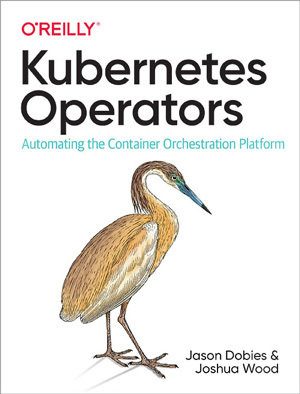Operators are a way of packaging, deploying, and managing Kubernetes applications. A Kubernetes application doesn’t just run on Kubernetes; it’s composed and managed in Kubernetes terms. Operators add application-specific operational knowledge to a Kubernetes cluster, making it easier to automate complex, stateful applications and to augment the platform. Operators can coordinate application upgrades seamlessly, react to failures automatically, and streamline repetitive maintenance like backups.
Think of Operators as site reliability engineers in software. They work by extending the Kubernetes control plane and API, helping systems integrators, cluster administrators, and application developers reliably deploy and manage key services and components. Using real-world examples, authors Jason Dobies and Joshua Wood demonstrate how to use Operators today and how to create Operators for your applications with the Operator Framework and SDK.
Learn how to establish a Kubernetes cluster and deploy an OperatorExamine a range of Operators from usage to implementationExplore the three pillars of the Operator Framework: the Operator SDK, the OperatorLifecycle Manager, and Operator MeteringBuild Operators from the ground up using the Operator SDKBuild, package, and run an Operator in development, testing, and production phasesLearn how to distribute your Operator for installation on Kubernetes clusters

暂无评论